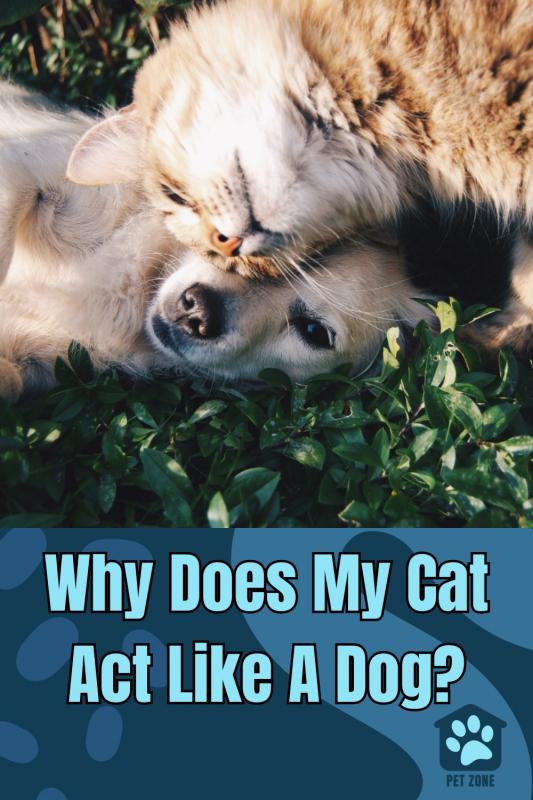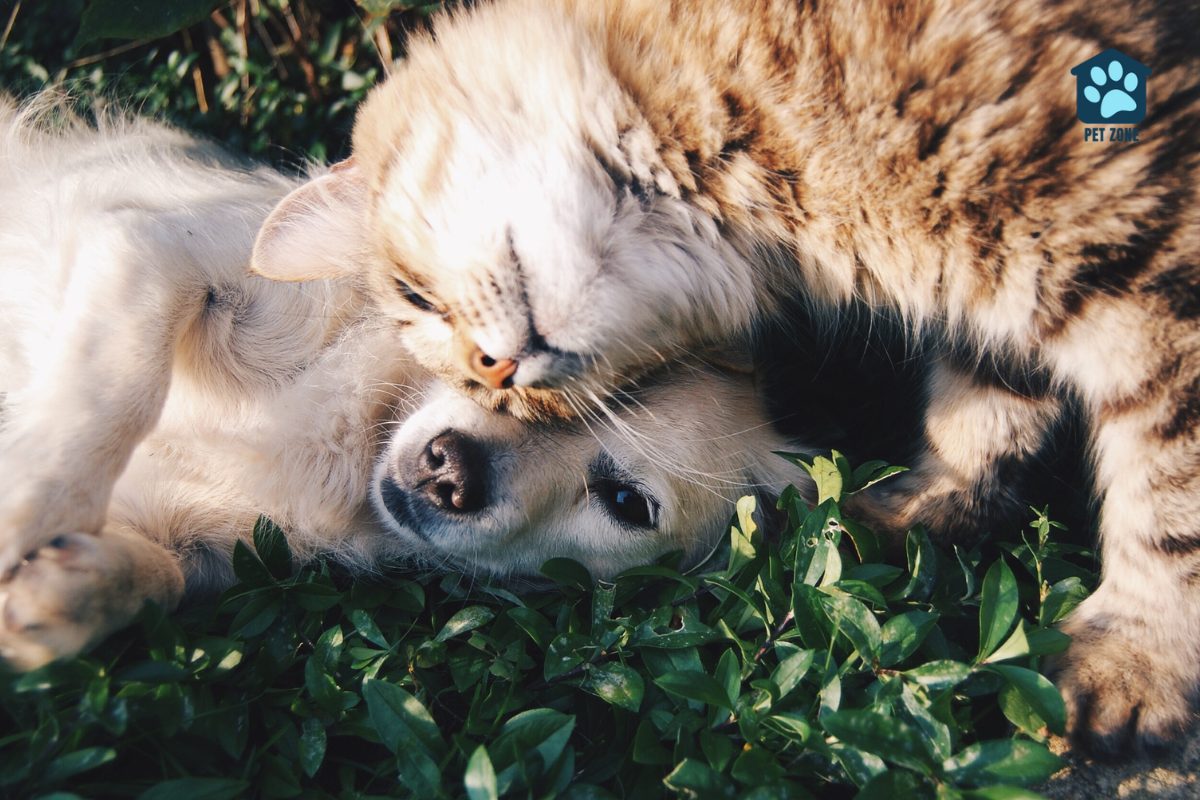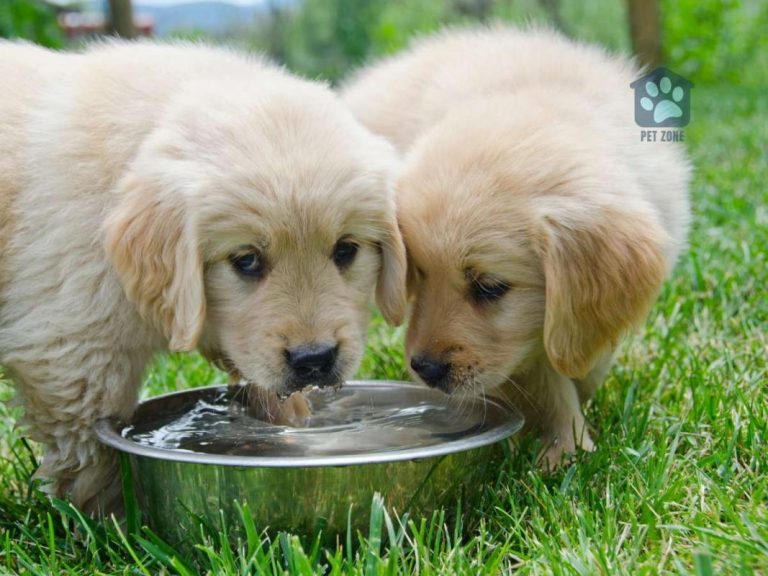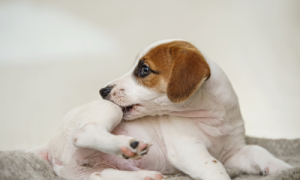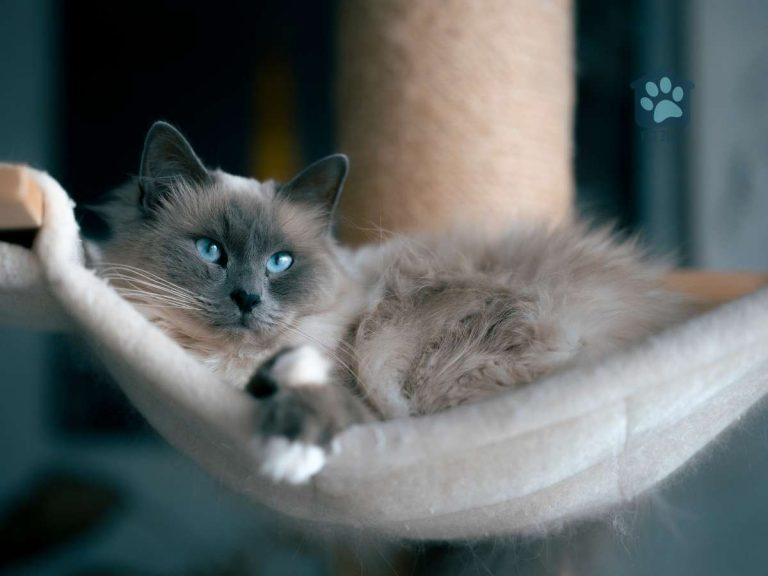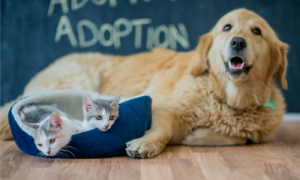Estimated reading time: 10 minutes
As a cat owner, have you ever looked at your whiskered companion and thought, “are you sure you’re not a puppy?” From fetching toys to eagerly greeting their humans at the door, some cats seem to blur the lines between cat and dog.
One fascinating fact that contributes to this phenomenon is that certain cat breeds are known for their dog-like traits. Maine Coons, for example, are often referred to as “gentle giants” who can be just as playful and trainable as many traditional canine pals.
This post delves into the reasons behind these quirky behaviors and shows how understanding them can lead to an even closer bond with your kitty. Discover what makes your purring pal tick – it might surprise you!
Key Takeaways
- Some cats behave like dogs due to early socialization with dogs, positive reinforcement training, and certain breeds’ genetic traits.
- Breeds like Abyssinian, Bengal, Maine Coon, Siamese, and Ragdoll are known for their dog – like behavior such as following commands or seeking human companionship.
- Cats that act like dogs may enjoy games like fetch and respond well to training techniques similar to those used with dogs.
- Positive rewards help train your cat in a fun way and build a strong bond between you both.
- Not all cats will show dog-like behavior; each cat’s personality is unique.
Understanding Why Some Cats Exhibit Dog-Like Traits
The Role of Early Socialization with Dogs
Cats that spend time with dogs when they are young might start to act like their canine buddies. This happens because kittens learn a lot about the world around them in their first few months.
If they play and hang out with friendly dogs, these cats might pick up dog ways, such as being okay with a leash or coming when called.
Letting your kitten meet nice dogs can make your cat more fun to be around. Kittens who get used to different animals and people often grow up feeling safe and happy with them. Such early friendships help cats not be scared or mean to others later in life.
They may even wag their tail, follow you around the house, or want cuddle time – just like a small dog would!
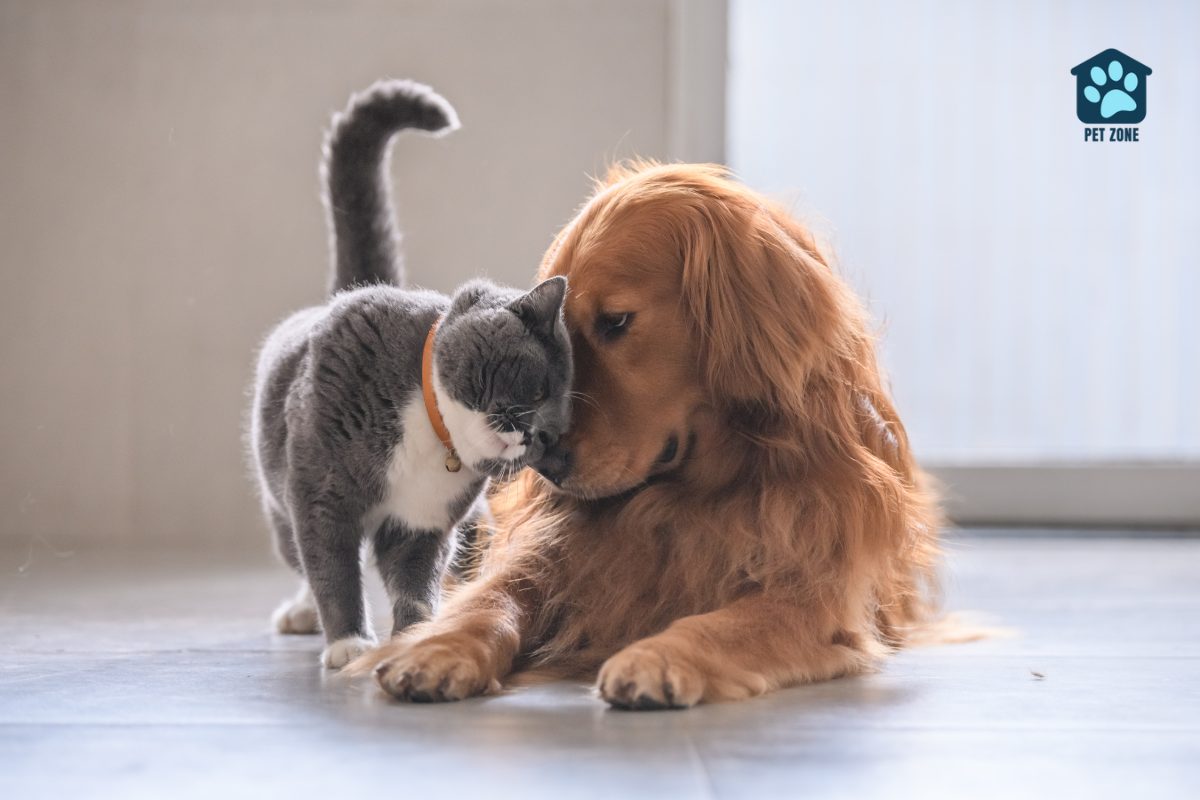
The Influence of Positive Reinforcement on Feline Behavior
Just like dogs, cats can learn from positive reinforcement. Imagine giving your cat a treat or a cuddle when they behave well. They’ll soon realize that good actions lead to rewards.
This method can reinforce dog-like behaviors in your cat. If you’ve rewarded them for actions typically seen in dogs, they’re likely to keep showing these traits.
This approach can even teach your cat dog-like tricks such as sitting or high-fiving. These rewards make them happy and bring them closer to you.
The Genetic Predisposition of Certain Cat Breeds
Some cats naturally act more like small dogs because of their genes. Years of breeding have made certain cat breeds share traits that we usually see in dogs. These special kitties might enjoy a good game of fetch or walking on a leash just like a playful puppy would.
It’s not just chance; it’s written in their DNA. For example, when scientists look at different types of cats, they find that some are shy and others can be bold with people. Breeds like the friendly Abyssinian or smart Siamese might be eager to please you and learn tricks fast.
This is because breeders have picked cats with these cool behaviors to make new kittens who also have them. So, if your cat acts more canine than feline, its ancestors were probably just like that too!
Canine Behaviors in Cats: What to Look For
Responding to Commands and Training
Teaching your cat to respond to commands and training is possible. Cats can be influenced by training and patience, learning to understand and respond just like dogs. With the right techniques and motivators, cats can be trained to exhibit dog-like behaviors such as walking on a leash or coming when called.
Rewarding desirable behaviors with positive reinforcement, like treats or favorite toys, can help in training cats effectively. Many pet owners have successfully taught their cats these behaviors through patience and consistent training efforts.
Just like dogs, cats can learn from positive reinforcement. Imagine giving your cat a treat or a cuddle when they behave well. They’ll soon realize that good actions lead to rewards.
This method can reinforce dog-like behaviors in your cat. If you’ve rewarded them for actions typically seen in dogs, they’re likely to keep showing these traits.
This approach can even teach your cat dog-like tricks such as sitting or high-fiving. These rewards make them happy and bring them closer to you.
So buckle up and give it a try, you might be surprised at what your furry friend can learn!
Seeking Affection and Companionship
After training your cat to respond to commands, you might notice that they seek affection and companionship. Cats can show their love in various ways, such as snuggling with you or following you around the house.
Some cats are known for their dog-like behavior of being more outgoing and seeking attention from their human companions. This behavior is attributed to both genetics and how they were raised by their previous owners or breeders.
Certain cat breeds, like Ragdolls and Maine Coons, are particularly known for being affectionate and seeking out human company. When looking for a new feline friend who will crave your attention, consider these breeds that have been bred to be loving companions.
Playing Fetch and Other Interactive Games
Some cats enjoy playing fetch, just like dogs. You can use small toys or crumpled paper balls instead of a stick or a ball because cats have different hunting instincts. Use positive reinforcement and treats to encourage your cat to bring the toy back to you.
Many cats love interactive games like hide-and-seek or puzzle toys where they have to figure out how to get a treat. These games help stimulate their minds and keep them physically active, similar to dog activities.
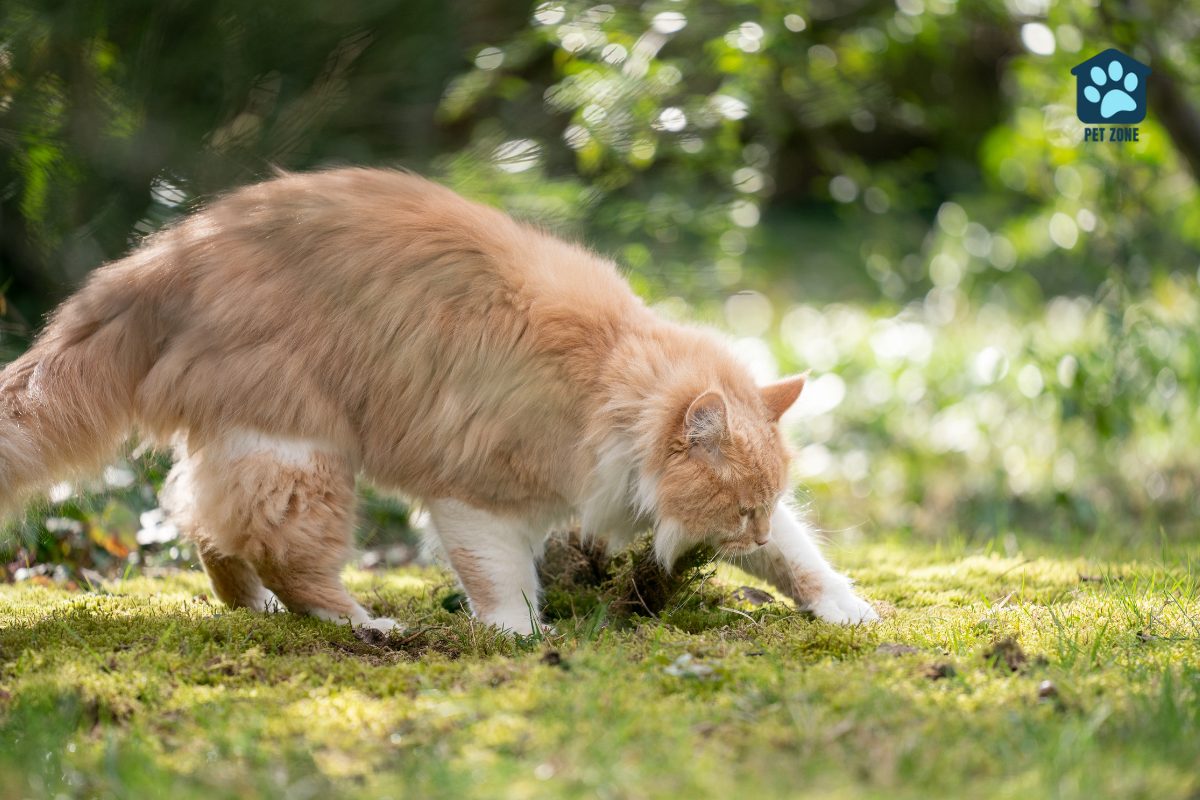
Cat Breeds Known for Their Dog-Like Behavior
Abyssinian
The Abyssinian cat stands out for its dog-like behavior. They are known for their loyalty and love for playing fetch. With a distinctive wildcat look, they are very energetic and engaging.
These lean, muscular cats enjoy climbing and playing, needing companionship with people or other pets. Affectionate and interactive, Abyssinians make great companions if you’re looking for a cat with dog-like qualities.
They love people and other animals, making them an easy addition to any home due to their ability to entertain themselves with toys.
Bengal
Bengal cats also exhibit dog-like behavior. Bengals are known for their wild personality, resembling mini leopards due to their appearance resulting from hybrid breeding with Asian leopard cats.
Their loyalty and intelligence make them quick learners, often exhibiting tricks and unique behaviors. Despite misconceptions about aggressiveness, Bengals have a high level of curiosity and activity that makes them more like dogs than typical domestic cats.
Bengal cats are fiercely loyal and highly intelligent; they can learn tricks and exhibit unique behaviors. Many people falsely assume that Bengal cats are aggressive because of their appearance as mini leopards but in reality, they have an insatiable sense of exploration similar to dogs.
Maine Coon
Maine Coon cats have a more laid-back and sociable disposition. These large and intelligent felines exhibit dog-like loyalty, enjoying human company just like dogs do.
Maine Coons are not typically “lap cats,” but they are relaxed around dogs, other cats, and children. Their affectionate and vocal nature makes them stand out as pets that exhibit both cat-like independence and dog-like companionship.
Maine Coons possess an extroverted personality with a friendly demeanor, much like the characteristics often associated with dogs. They are known for being intelligent, gentle, affectionate pets who love their people.
Manx
Manx cats are unique due to their distinctive feature of being tailless. This breed is known for its intelligence, playfulness, and affectionate nature towards people.
Manx cats are highly social animals that form strong bonds with their owners. Known for their friendly and easygoing attitudes, they enjoy spending time with humans and engaging in playful activities.
Ragdoll
One cat breed known for dog-like behavior is the Ragdoll. Ragdolls are famous for their affectionate and outgoing nature, earning them the nickname “puppy-cats.” They exhibit almost dog-like devotion to their owners and are gentle, calm, and sociable.
Unlike some other breeds, they are not demanding but rather easy-going and independent. Their tendency to collapse into the arms of anyone who holds them highlights their love for human interaction.
Ragdoll cats are also known to come when called and enjoy being around people. Their friendly and mild-mannered disposition makes them a great choice for those seeking a feline companion with qualities reminiscent of dogs.
Siamese
Siamese cats are among the cat breeds known for their affectionate and sociable nature. Their intelligence, trainability, and playful behavior often make them likened to dogs. They have a distinctive and sometimes loud meow, showcasing their vocal and expressive personality.
Siamese cats are gentle and get along well with children and other pets due to their friendly nature. However, they require attention and affection from their owners because of their own desires.
This breed is both affectionate and fun-loving, making it an excellent choice for families looking for an engaging pet.
Sphynx
The Sphynx cat breed is unique for its outgoing and affectionate nature. These cats are energetic, loyal, and often compared to being part cat, part dog, and part monkey. They love heat and may display behaviors like playing fetch.
With their high level of affection and love for cuddling, Sphynx cats are known for appearing more dog-like in their behavior due to their hairless nature. Additionally, they’re highly intelligent and charming which further contributes to their dog-like behavior.
Turkish Angora
The Turkish Angora cat breed is known for its playful and affectionate personality. They are highly intelligent and develop strong bonds with their family units, making them great companions for people of all ages, including children and seniors.
These cats thrive in active households and require plenty of play and activity to be happiest. With their mischievous and determined nature, Turkish Angoras exhibit dog-like behavior by being incredibly social, loving to play and run around.
This breed of cat is a wonderful addition to homes with lots of activity or those who adore a cuddly yet adventurous furry friend.
Whether it’s seeking out attention or engaging in interactive games, the Turkish Angora offers the best of both worlds as they mimic some canine traits while remaining distinctly feline in their independence and curiosity.
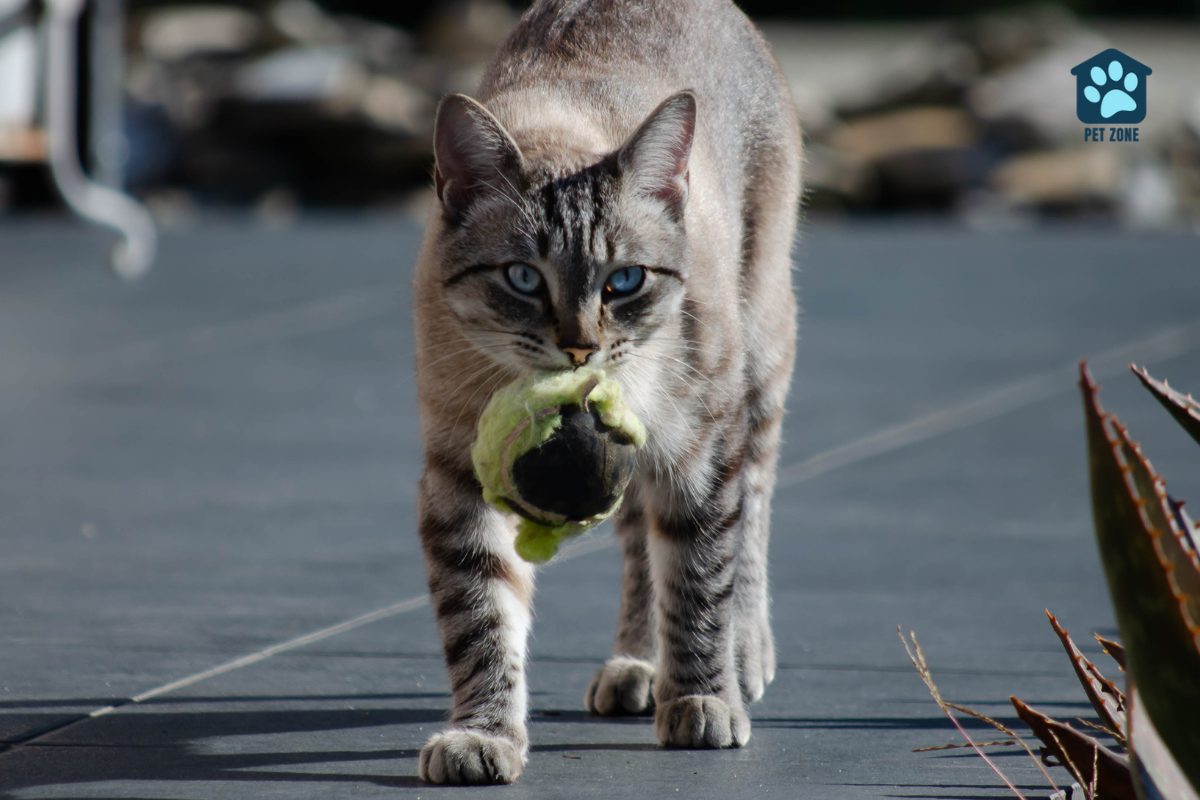
Conclusion: Embrace Your Cat’s Personality
After learning about why some cats act like dogs, cat lovers can embrace their cats’ unique traits. By understanding the reasons behind this behavior, you can appreciate your feline companion even more.
Look for practical signs of canine behavior in your cat and celebrate their individuality. Maybe it’s responding to a command or seeking affection in a dog-like way. Consider if your cat belongs to certain breeds known for dog-like behavior, such as Abyssinian or Ragdoll.
Embrace these distinctive characteristics and enjoy the wonderful companionship of your furry friend.
As an Amazon Associate I earn from qualifying purchases.
